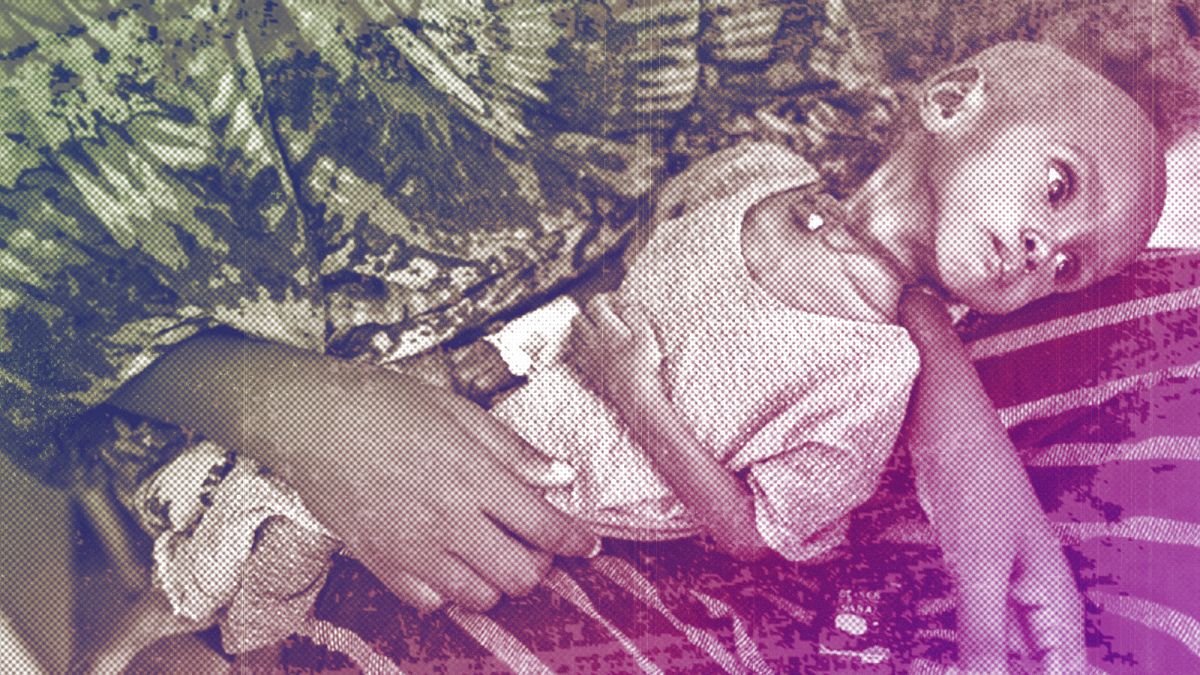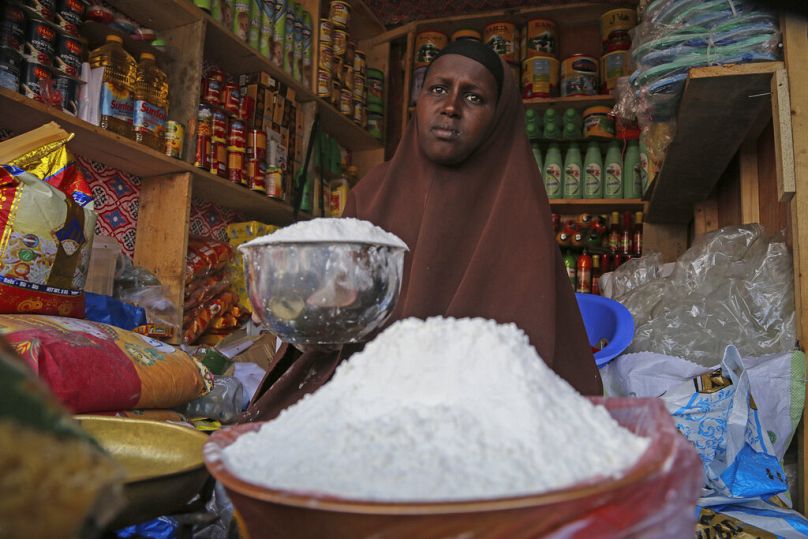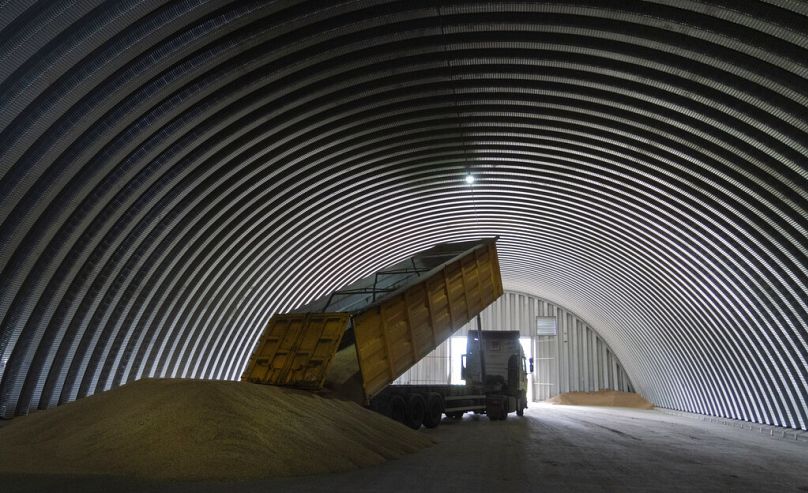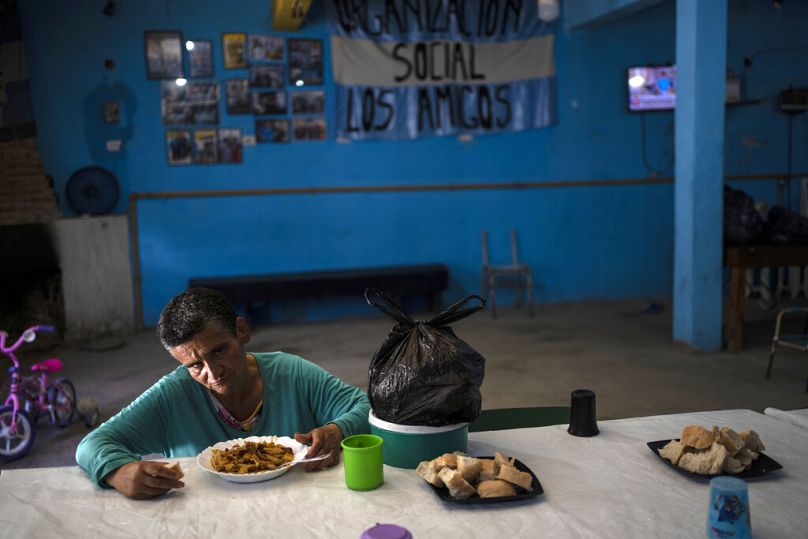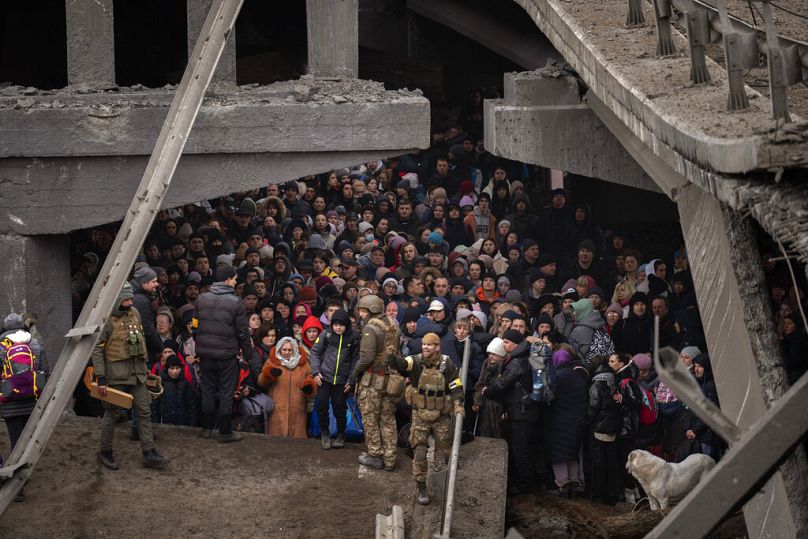We cannot stand witness as the world’s most severe humanitarian crises spiral further out of control, IRC's Harlem Désir writes.
A year since the start of the full-scale war in Ukraine, the conflict continues to take a devastating toll on people inside the country and those forced to flee.
However, its ripple effects are also being felt far beyond Europe’s borders. Across the globe, populations continue to be deeply impacted by the disruption of global supply chains, skyrocketing energy prices, and soaring levels of inflation.
This dangerous brew is compounding the effects of conflict, climate change and economic turmoil, which have already tipped vast parts of the globe into a humanitarian crisis.
And, as ever, the world’s most vulnerable are being hit hardest.
Everyone everywhere is paying the price of war in Europe
As the full-scale war in Ukraine enters its second year, it is critical that the international community acknowledges the sheer scale of this humanitarian emergency — they have a moral imperative to do so, as well as a geopolitical interest.
Populations across the globe are paying a heavy price for this war in Europe, while the complex and often protracted crises in their own countries are too often forgotten.
Today, the World Bank says a startling 94% of low-income countries globally are facing soaring levels of inflation, fueled in part by the impact of the war in Ukraine on food and fuel prices.
According to the IRC’s Emergency Watchlist, which highlights the 20 countries most at risk of worsening humanitarian crises in 2023, food prices have increased by almost 40% over the past year.
Even when food is available in markets, people can often not afford to put food on the table for their families.
This inflation is fueling a global food crisis of unprecedented proportions. Today a record 349 million people across 79 countries are estimated to be experiencing acute food insecurity, according to the World Food Programme, as famine looms across parts of East Africa.
Poorer countries hit the hardest
Meanwhile, the shockwaves across global energy markets are being felt most acutely by lower and middle-income countries — many of which are yet to recover from the impacts of the COVID-19 pandemic.
According to the International Energy Agency, some 70 million people worldwide who recently gained access to electricity can no longer afford it, with many returning to coal and firewood to heat their homes.
The ripple effects of the war in Ukraine are shining the spotlight on the fragilities of the international community’s systems to prevent humanitarian crises from spiralling out of control.
However, they also provide us with some examples of how we can begin to strengthen them.
For example, the Black Sea Grain Initiative was a much-needed step towards restarting shipments of Ukrainian grain to people in hunger-affected countries.
However, a closer analysis of this mechanism shows that — so far — just 10% of the grain exported through this initiative has been delivered to just five low-income countries: Afghanistan, Ethiopia, Somalia, Sudan and Yemen.
In fact, Spain has received twice as much as these five countries put together.
At this juncture, it is vital that the Black Sea Grain Initiative is maintained and adapted to ensure that grain reaches the people who need it most, including the countries most at risk of famine.
We have to break the vicious cycle of global crises
Similarly, the initial response from Europe and the broader international community to protect and support people forced to flee Ukraine has been impressive.
It proves that they are able to welcome people with dignity and respect when there is the political will to do so.
They must now continue to support people forced from Ukraine for as long as necessary while applying a similar approach rooted in solidarity and responsibility-sharing to the millions of others displaced from similarly harrowing situations across the globe.
These swift responses can provide a blueprint for what can and must be done to break the vicious cycle of global crises we’re witnessing today.
First and foremost, global leaders must step up to fix the international community’s response to the hunger crisis.
While food insecurity is undoubtedly a complex challenge, mass deaths caused by famine and untreated malnutrition are preventable. Solutions exist, but the international community is not using them effectively.
Urgent steps must be taken to reboot the global response to extreme hunger by both re-energising the Secretary-General’s High-Level Task Force on Preventing Famine and by adopting a simplified protocol to ensure that malnutrition treatment is available to all those who need it.
Civilians in dire need of protection
Secondly, climate change is rapidly accelerating humanitarian emergencies. It’s destroying agriculture and livelihoods, worsening cyclical drought, and eroding coping mechanisms.
In order to mitigate these crises, it will be vital to better map climate risks in humanitarian settings, as well as identify innovative solutions such as climate-resilient agriculture to ensure rural communities are prepared to face future recurring shocks.
Thirdly, the international community must scale up its commitments to protect civilians in conflict. The war in Ukraine is a stark illustration of the high price paid by civilians when International Humanitarian Law is violated with impunity.
The most severe abuse of civilians requires actions that transcend politics and polarisation.
Just as France has been demanding, the permanent members of the UN Security Council should suspend their veto power in cases of mass atrocities.
Lastly, humanitarian aid must be delivered through a people-first strategy, in coordination with NGOs and local civil society, to ensure that it can swiftly and effectively reach people in hard-to-reach areas such as on the frontlines of conflict.
We can't just stand by and watch
The international community cannot stand witness as the world’s most severe humanitarian crises spiral further out of control.
Even at a time when a great deal of focus and means are rightly directed at supporting Ukraine, the international community must prioritise concrete action to break the vicious cycle of drought, hunger and famine in other parts of the world.
If it fails to do so, we will be faced with the same dismal outlook — or worse — a year from now.
There will be an even greater divide between the West and the Global South, with the most vulnerable bearing the brunt.
Harlem Désir is the International Rescue Committee’s Senior Vice-President, Europe. Previously, he was the founder and president of SOS Racisme, a Member of the European Parliament, the French Secretary of State for European Affairs and OSCE Representative on Freedom of the Media.
At Euronews, we believe all views matter. Contact us at view@euronews.com to send pitches or submissions and be part of the conversation.
